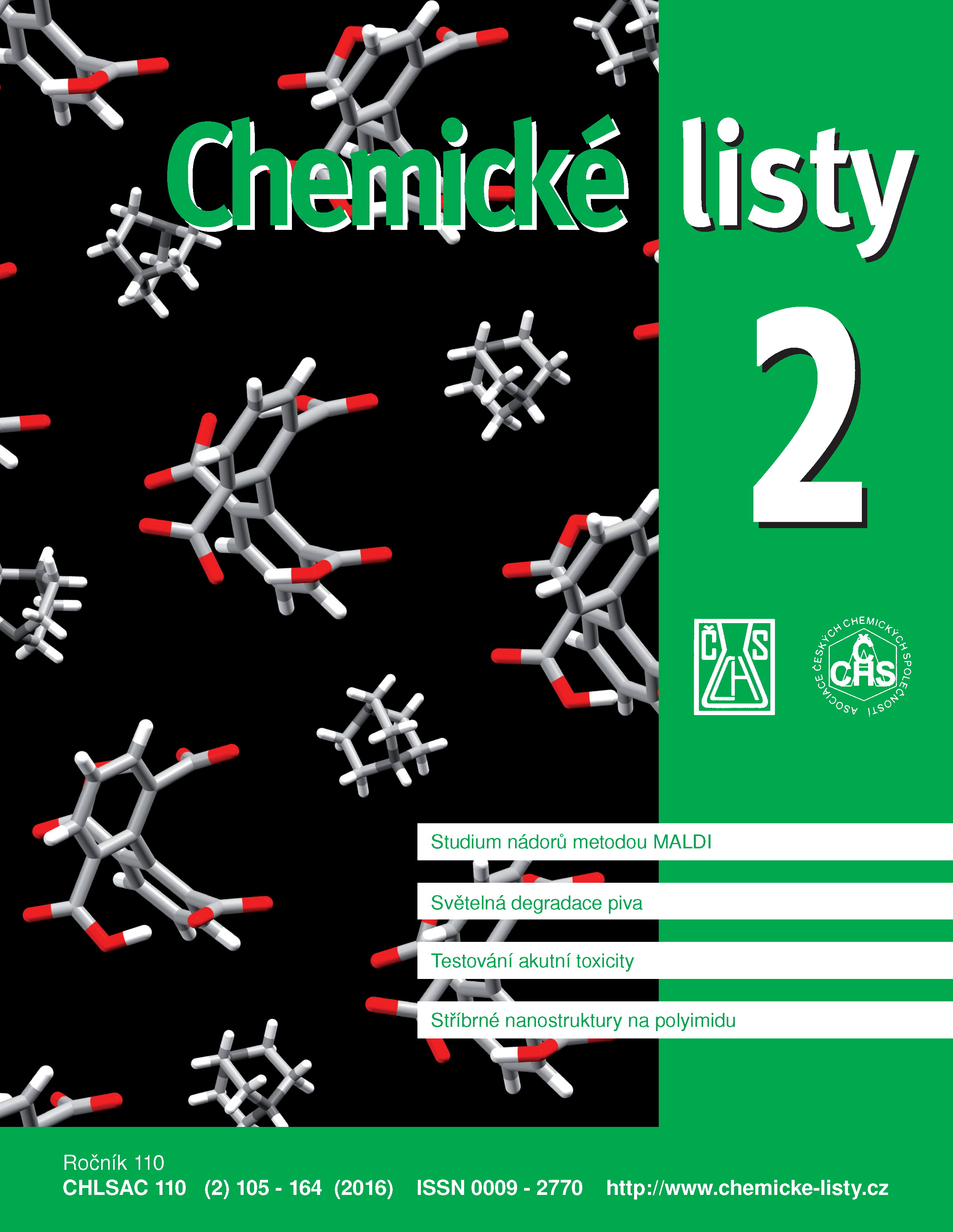Stříbrné nanostruktury deponované na polyimidu: charakterizace povrchu a antibakteriální účinky
Klíčová slova:
polyimid, stříbro, naprašování, tepelné namáhání, nanostruktury, antibakteriální účinkyAbstrakt
The use of untreated medical devices (catheters, endotracheal tubes) can lead to hospital-acquired infections. Antibacterial coatings of biocompatible polymers may reduce the risk of such infections. Silver nanolayers of different thickness were sputtered on polyimide (PI) and investigated both before and after thermal annealing. The electrical continuity of the layers was examined by sheet resistance. After sputtering, the layers become electrically continuous from an effective thickness of 11 nm. However, atomic force microscopy showed that the surface of the annealed samples underwent significant changes; they were transformed into discrete nanoislands and lost continuity completely. This phenomenon was supported by X-ray photoelectron spectroscopy which showed that the amount of Ag was reduced. The antibacterial properties of the as-sputtered and annealed samples were investigated by gram-negative and gram-positive bacterial strains. The inhibition of bacterial strains increased significantly after annealing. In general, our results suggest that Ag nanostructures are promising antibacterial coatings for polymeric medical devices.





